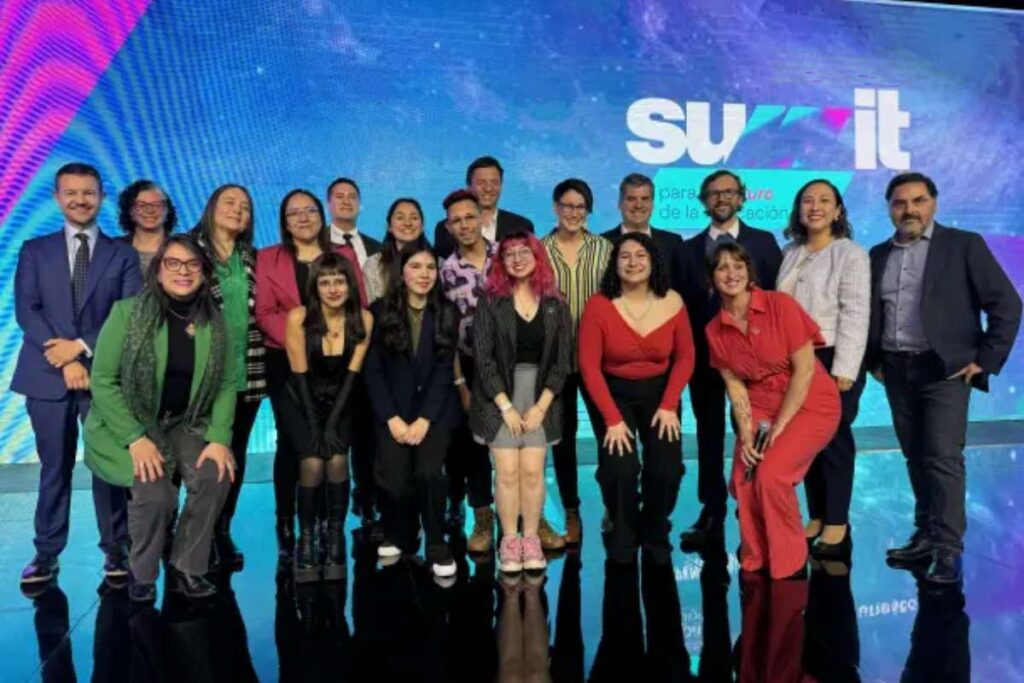[Source – unesco.org]
In a significant gathering held on 3 and 4 September 2023, experts from around the globe met in Santiago, Chile, to explore the evolving role of artificial intelligence (AI) in education. The event, organized by UNESCO’s Regional Office for Latin America and the Caribbean in collaboration with the País Digital Foundation, was a key feature of UNESCO’s Digital Learning Week. Attendees included leading academics, educators, students, and government officials who examined the impact of AI on learning, from early childhood education to higher education, highlighting both the opportunities and challenges presented by the technology.
Esther Kuisch Laroche, Director of UNESCO’s Regional Office for Latin America and the Caribbean, emphasized the importance of the summit organized by UNESCO and País Digital Foundation, highlighting the pivotal role AI can play in transforming education. She remarked, “It was a unique opportunity to share visions, reflections, and experiences on how artificial intelligence can enhance education, teaching, and learning.” Laroche emphasized that for AI to be fully effective, it must be integrated ethically, ensuring that all students gain essential digital skills without being left behind.
The discussions and presentations over the two days reflected a growing recognition of the need for balanced and fair AI implementation. The summit comes at a time when digital technologies are rapidly reshaping educational practices inside and outside traditional classroom settings and raising new questions about equity, accessibility, and the quality of education in an AI-driven world.
Innovative Ideas and Expert Presentations
The event, organized by UNESCO and País Digital Foundation, featured several notable speakers who presented frameworks and ideas for successfully integrating AI into education systems. Fengchun Miao, Chief of the Unit for Technology and AI in Education at UNESCO Headquarters, delivered the opening remarks, setting the stage for an in-depth exploration of AI’s impact on education.
One of the most impactful presentations was given by María Eugenia Curi, an AI specialist from the Ceibal Foundation, who outlined “A Framework for Integrating AI in Education.” This framework provided a roadmap for incorporating AI at various educational levels, ensuring that both students and teachers can harness its potential for effective learning. Additionally, Lionel Brossi, Director of the AI and Society Research Centre at the University of Chile, presented on disruptive AI pedagogical models, showcasing how AI could revolutionize traditional teaching methods and provide new opportunities for both educators and learners.
Catalina Araya, Director of Education at the País Digital Foundation, added to the dialogue by highlighting the inclusive nature of the summit. She stressed that bringing together all stakeholders—from educators to policymakers—was crucial to ensure AI benefits everyone. “The Summit on the Future of Education has been an opportunity to maximise the potential of AI in education and prepare future generations to face the challenges of digitalisation,” Araya said, calling for an inclusive approach that leaves no one behind.
Addressing the Ethical and Social Implications
As AI becomes more integrated into education, experts at the summit recognized the need to address the broader implications of its use. Chile’s Undersecretary for Science, Technology, Knowledge, and Innovation, Carolina Gainza, acknowledged that AI’s integration into education extends beyond technical hurdles. She pointed out that AI’s social, cultural, political, and economic aspects must also be considered. “We must discuss the ethical and social implications of these technologies to ensure they benefit society and promote a more just and democratic future,” Gainza said.
The summit concluded with a consensus that while AI offers transformative possibilities for education, its ethical application and the consideration of its broader impact are vital. As digital technologies continue to evolve, forums like this will remain essential in ensuring that AI not only enhances learning but does so in a way that is fair, inclusive, and equitable for all students.

